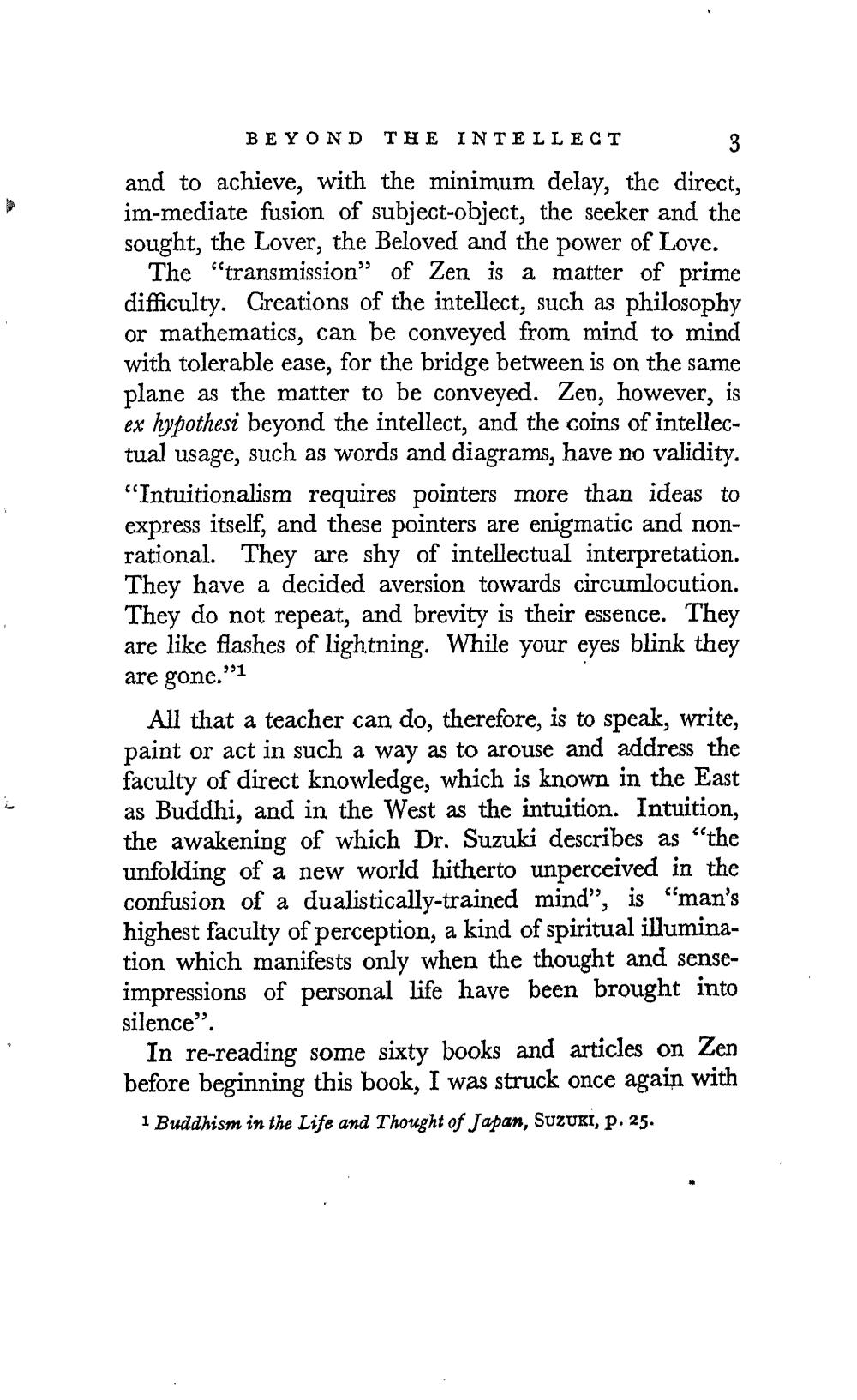________________
BEYOND THE INTELLECT
3 and to achieve, with the minimum delay, the direct, im-mediate fusion of subject-object, the seeker and the sought, the Lover, the Beloved and the power of Love.
The "transmission" of Zen is a matter of prime difficulty. Creations of the intellect, such as philosophy or mathematics, can be conveyed from mind to mind with tolerable ease, for the bridge between is on the same plane as the matter to be conveyed. Zen, however, is ex hypothesi beyond the intellect, and the coins of intellectual usage, such as words and diagrams, have no validity. "Intuitionalism requires pointers more than ideas to express itself, and these pointers are enigmatic and nonrational. They are shy of intellectual interpretation. They have a decided aversion towards circumlocution. They do not repeat, and brevity is their essence. They are like flashes of lightning. While your eyes blink they are gone."1
All that a teacher can do, therefore, is to speak, write, paint or act in such a way as to arouse and address the faculty of direct knowledge, which is known in the East as Buddhi, and in the West as the intuition. Intuition, the awakening of which Dr. Suzuki describes as "the unfolding of a new world hitherto unperceived in the confusion of a dualistically-trained mind”, is “man's highest faculty of perception, a kind of spiritual illumination which manifests only when the thought and senseimpressions of personal life have been brought into silence".
In re-reading some sixty books and articles on Zen before beginning this book, I was struck once again with
1 Buddhism in the Life and Thought of Japan, SUZUKI, P. 25.




